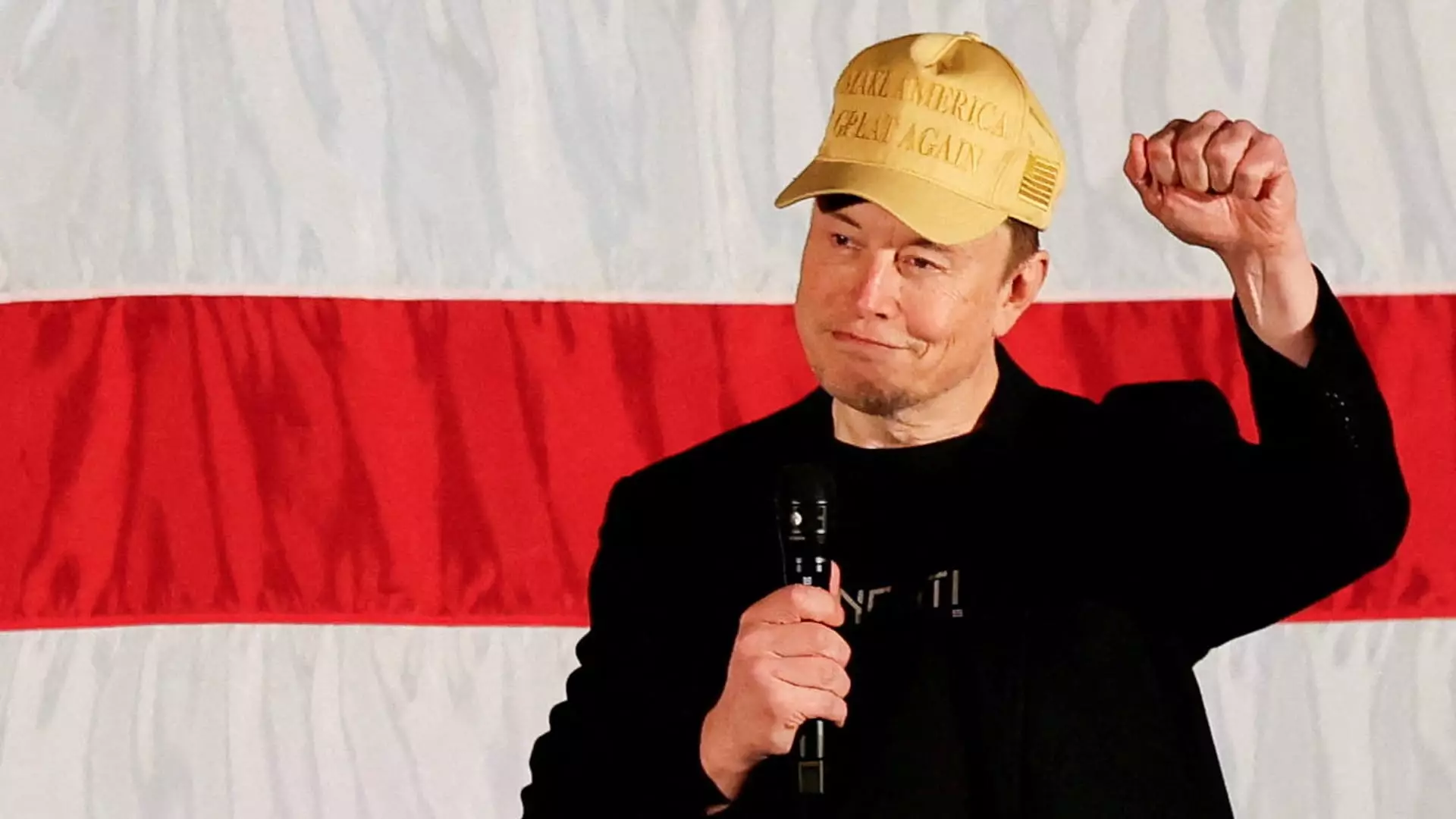Elon Musk, renowned for his ventures in technology and space travel, has recently taken a bold step into the realm of politics, igniting significant debate. At a political action committee event in Harrisburg, Pennsylvania, Musk unveiled a plan to give away $1 million daily to individuals who sign a petition for his pro-Trump political action committee. This initiative raises multiple questions about the intersection of wealth, influence, and election integrity.
Musk’s proposal is simple yet provocative: he plans to award $1 million each day until the election to registered voters who endorse his petition. At the Harrisburg event, Musk surprised attendees by personally handing a large check to a participant named John Dreher, dripping with theatrics more than substance. “I think this is kind of fun, and you know, it seems like a good use of money basically,” Musk remarked. For someone whose fortune exceeds $250 billion, this gesture might appear trivial, yet its implications are anything but.
The announcement coincides with Musk’s active push in Pennsylvania, which he has dubbed the “linchpin” state for the elections. Musk’s statement reflects a belief that the outcome in Pennsylvania could dictate the election results nationally. However, his method to galvanize voters reveals a concerning tactic that directly contradicts the integrity of democratic processes.
The legality of Musk’s financial inducement has come under scrutiny from experts. Legal analysts, such as Rick Hasen from UCLA, warned that Musk’s initiative might contravene federal election laws aimed at preventing the commercialization of votes. The legislation clearly stipulates that offering payment for voter registration or voting itself is illegal. Hasen articulated a critical point: while many aspects of life can be monetized, voting should not fall into that category. The spirit of American democracy relies on the principle that votes must be cast freely, without the influence of wealth.
In light of these regulations, Pennsylvania’s Democratic Governor, Josh Shapiro, voiced his “deeply concerning” sentiments regarding Musk’s plan. He suggested that law enforcement should seriously investigate the matter, indicating that the situation is fraught with legal and ethical complications.
Musk’s foray into political support extends beyond simple financial incentives. He has previously circulated unfounded claims about widespread voter fraud and has aggressively criticized regulatory bodies, portraying them as hindrances to progress. In his speeches, Musk typically outlines a vision where governmental regulations are minimized, advocating for a more laissez-faire approach. He has made statements like, “We should not trust the government, really. We just shouldn’t,” creating a narrative that aligns with populist sentiments but raises alarms about governance.
Despite the gravity of his statements, Musk’s focus at these pro-Trump events seems to wade into bizarre territory, with snide remarks that attracted unwanted attention. His past comments about Vice President Kamala Harris have sparked controversy and provoked concerns from security agencies, further entrenching his polarizing public figure.
Ironically, despite Musk’s disdain for governmental oversight, his businesses have thrived under government support. Companies like Tesla and SpaceX have benefited from substantial federal contracts and subsidies. Musk’s contradictions are glaring—waxing poetic about detoxifying the government while simultaneously relying on federal funds for business success demonstrates a duplicitous stance.
Moreover, his criticisms extend to a range of agencies such as the EPA and FAA, which he has accused of stifling innovation. While his rhetoric champions deregulation, environmental and safety concerns are crucial in industries that directly affect public welfare. His disparaging remarks about environmental studies, particularly requesting analyses on potential impacts of rocket launches on marine life, elaborate a troubling disconnection between corporate ambition and ecological responsibility.
Musk’s extravagant giveaway has far-reaching ramifications for voter behavior. The question remains: does this create a more engaged electorate, or does it cheapen the very act of voting? The response from the public remains unclear, but the act of crowdfunding votes invokes parallels to bribery—a notion at odds with the freedoms vested in a democratic society.
As the deadline for petition signing looms, the real test now is whether Musk’s initiative mobilizes genuine enthusiasm among voters or merely serves as a superficial ploy to sway electoral outcomes through his immense wealth. Ultimately, the long-term impacts of such a controversial move may be felt well beyond this election cycle and could redefine how political engagement is approached in the age of billionaires.
In the ever-evolving landscape of American politics, Musk’s initiative represents a crossroads of commerce, democracy, and ethical governance that will certainly spark debate for years to come.


Leave a Reply
You must be logged in to post a comment.